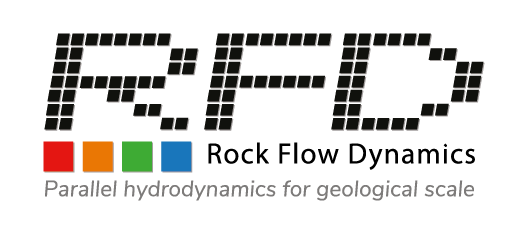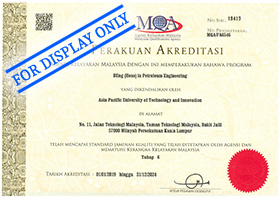You are here
Bachelor of Petroleum Engineering with Honours
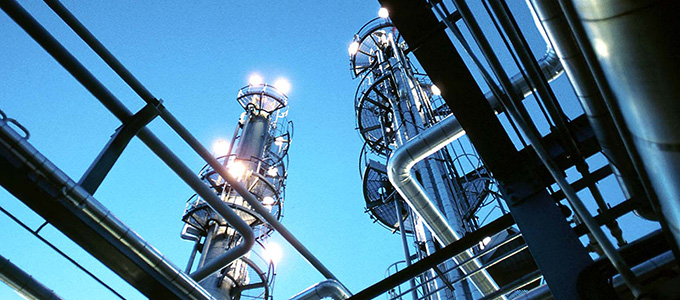
|
|
|
APU-DMU DUAL DEGREE PROGRAMME
|
INTERNATIONAL RECOGNITION - ENGINEERING DEGREES ACCREDITED UNDER THE WASHINGTON ACCORD
APU Engineering Degrees are fully accredited by the Board of Engineers Malaysia (BEM) which is a signatory to the Washington Accord.
For more information, please click HERE. | 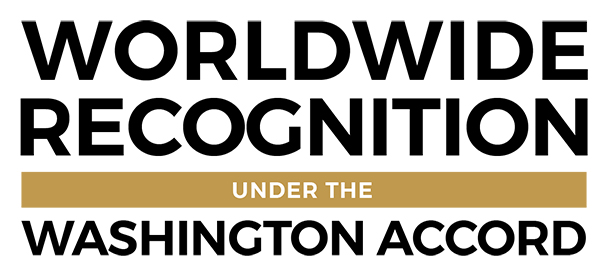 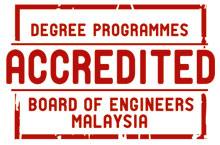 |
Bachelor of Petroleum Engineering with Honours is powered by:
| | |
The infusion of software application for petroleum engineering has been fully incorporated into the curriculum. This is in line with the industry’s move towards Digital Transformation and enhancing productivity in the field. Strong Industry-Academia partnerships at APU with organisations such as Petroleum Experts Limited, UK (PETEX) and Rock Flow Dynamics Ltd., USA (RFD) have allowed for the provision of industrial software for student learning and research purposes. APU students have the hands-on practical experiences through petroleum engineering related software tools which also are being applied in their Field Development Project (FDP) and Final Year Project (FYP) works. APU is one of the first universities in Malaysia to provide students with a combination of Integrated Production Modelling (IPM) and Reservoir Engineering Simulation (tNav) modern industrial tools. Further strengthening the curriculum is the application of the Computer Modelling Group (CMG) software which is used for reservoir modelling and enhanced oil recovery studies.
ADMISSION REQUIREMENTS
| GENERAL REQUIREMENTS | |
| DIRECT ENTRY TO LEVEL 1 OF THE DEGREE: | |
| STPM | • 2 Passes in STPM with a minimum Grade C (GP 2.0) in Mathematics and Physics (or Chemistry), and a Credit in Mathematics and Physics (or Chemistry) at SPM Level or its equivalent. |
| A-LEVEL | • 2 Passes (Grade A-D) in A-Level including Mathematics and Physics (or Chemistry). |
| UEC | • 5 Grade B’s in UEC, including Mathematics and Physics (or Chemistry). |
| MATRICULATION/ FOUNDATION | • Passed the relevant Foundation programme (minimum CGPA of 2.0) with a Credit in Mathematics and Physics (or Chemistry) at SPM/O-Level/IGCSE or equivalent. |
| ENTRY TO LEVEL 2 OF THE DEGREE: | |
| DIPLOMA | • Successful completion of the APU/APIIT Engineering Diploma and fulfilment of requirements for Credit Transfer, subject to the approval of the APU Academic Board OR • Successful completion of a Diploma in Engineering with other recognised Institutions and fulfilment of requirements for Credit Transfer, subject to the approval of the APU Academic Board. |
Candidates who wish to study Engineering Degree course must not be color blind or physically handicapped which makes him/her unable to conduct experimental/practical work and affect the learning process leading to potential errors towards professional practice as well. This is in line with the requirements of engineering professional bodies where safe engineering practices is mandatory. All International Students need to go through EMGS Medical Screening, if the student is found to be color blind; the Medical Screening maybe failed.
| ENGLISH REQUIREMENTS | |
INTERNATIONAL STUDENTS | • IELTS : 5.0 |
PROGRAMME EDUCATIONAL OBJECTIVES
- Be a practicing engineer contributing to the development of Petroleum Engineering while demonstrating professionalism.
- Pursue engineering innovation via career advancement opportunities and/or advanced studies in Petroleum Engineering.
Petroleum engineers travel to where petroleum reservoirs are known to exist. They define and develop the reservoirs, and produce oil and gas with maximum profitable recovery. Petroleum engineering allows one to specialise in several different oil & gas specialties, each with its own unique challenges and rewards. The careers and job activity areas are as a:
|
|
PROGRAMME LEARNING OUTCOMES
The students, upon completion of their study, should attain the following outcomes:
| PLO1 | Ability to gain and apply principles of Mathematics, Science and Engineering to the solutions of complex engineering problems. |
PLO2 | Ability to undertake complex engineering problem analysis and apply engineering principles to solve them. |
PLO3 | Ability to design innovative solutions for complex engineering problems. |
| PLO4 | Ability to investigate complex engineering problems using research techniques. |
| PLO5 | Ability to select and use suitable tools and techniques for complex engineering problems. |
| PLO6 | Ability to engage in professional engineering practice for safety, health, social, cultural and legal responsibilities in developing solutions for complex engineering problems. |
| PLO7 | Ability to comprehend and demonstrate good practices of engineering in sustainable development and environmental considerations for the solutions of complex engineering problems. |
| PLO8 | Ability to execute the responsibilities of an Engineer professionally and ethically. |
| PLO9 | Ability to function effectively as a team leader or a member in a team within multi-disciplinary settings. |
| PLO10 | Ability to communicate effectively and professionally on complex engineering activities. |
| PLO11 | Ability to demonstrate entrepreneurship skills, engineering project management and economic decision making in multidisciplinary environments. |
| PLO12 | Ability to recognise the need for, and be able to engage in independent and life-long learning towards continuous professional development. |
PROGRAMME OUTLINE
This programme is specifically designed to provide students with:
- High quality undergraduate engineering education that combines petroleum, gas and exploration engineering to cater for the ever-demanding oil and gas industry.
- The ability to apply engineering principles to the design, development and operation of systems for locating, extracting, processing and refining crude petroleum and natural gas, including mining and drilling systems, processing and refining systems and facilities, storage facilities, transportation systems, and related environmental and safety systems.
DEGREE YEAR 1 |
Students will understand the basic principles of engineering in the areas of Petroleum Engineering, Petroleum Geology, Engineering Materials etc. Other modules aim to provide the basic academic skills required to meet the demands of employers, as well as thorough grounding in principles of IT and entrepreneurship. Important and relevant skills for managing activities and for their own independent learning are also introduced.
COMMON MODULES | |
|
|
SPECIALISED MODULES | |
|
|
DEGREE YEAR 2 |
Here, students start specialising in modules that develop the necessary underlying knowledge and skills in Petroleum Engineering with modules such as Rocks & Fluid Properties, Formation Evaluation & Well Logging etc. Other modules such as Introduction to Engineering Software and Applications is used to provide better understanding of software skills.
COMMON MODULES | |
|
|
SPECIALISED MODULES | |
|
|
DEGREE YEAR 3 |
Specialised knowledge and skills in the areas of Reservoir Simulation, Drilling Engineering, Reservoir Engineering, Well Design & Completion, Production Engineering, Enhanced Oil Recovery, Well Testing and Gas Engineering are the critical focus of this level. There is further development of the ability to apply relevant engineering skills with strong critical thinking and analysis. Independent learning continues in all modules.
COMMON MODULES | |
|
|
SPECIALISED MODULES | |
|
|
IN THE 2ND SEMESTER OF YEAR 3 MINOR/EXTENSION PATHWAY (CHOOSE 1) | |
| |
INTERNSHIP (16 WEEKS) |
Students will undertake an Internship/Industrial Training for a minimum period of 16 weeks to prepare them for a smooth transition from the classroom to the working environment.
DEGREE YEAR 4 |
The final year Engineering modules provide the necessary industry application and technological skills which become very useful for employment upon graduation. Students’ personal and professional development, technical capability and understanding of how to innovate, generate and manage the creation of new ideas will be enhanced via Engineering Projects.
COMMON MODULES | |
|
|
SPECIALISED MODULES | |
|
|
MINOR/EXTENSION PATHWAY (CONTINUATION) | |
| |
PETROLEUM ENGINEERING MINOR/EXTENSION PATHWAYS
Future Proof Engineers for the Real World
In APU, employment and it’s continual sustainability is of paramount importance to us. The range of minor and extensions offered to all students within the School of Engineering will craft a formidable way forward for the young aspiring engineers of tomorrow. These options allow students to embark on a journey of exploration either within the engineering fraternity by extending into greater depth (extensions) niche knowledge, skills and attributes required for the practice of contemporary engineering or explore wider options (minor) that are pivotal in the fundamental proliferation of the engineering profession as a while when coupled with other current multidisciplinary fields of expertise. Successful completion of either pathways future proof the students allowing them to embark on a journey of rewarding careers within an engineering discipline of their choice.
Minor Pathway – Gain breadth of knowledge by taking 3 set modules outside of a particular major field of study. There are minor packages available undertaken from Year 3 Semester 2 Year 4 Semester 1 and Year 4 Semester 2.
MINOR PATHWAY | ||||
NAME OF MINOR | Year 3 Semester 2 | Year 4 Semester 1 | Year 4 Semester 2 | |
loT | Knowledge Discovery and Big Data Analytics | Internet of Things: | Emergent Technology | |
FinTech | FinTech Governance, Risk Management & Compliance | Digital Finance | Robo Advisor | |
Digital Transformation | Digital Execution | Digital Strategy & Analytics | Emergent Technology | |
Data Analytics | Knowledge Discovery and Big Data Analytics | Behavioral Science and | Optimization & Deep | |
Artificial Intelligence | Machine Vision Intelligence | Text Analysis & Sentiment | Emergent Technology | |
Digital Age Psychology | Industrial & Organizational | Cyberpsychology | Human Factors | |
Extension Pathway – Expand depth of knowledge by taking three (3) set modules in a specific area within a certain field of study. There are extensions available undertaken from Year 3 Semester 2, Year 4 Semester 1 and Year 4 Semester 2.
EXTENSION PATHWAY | ||||
NAME OF EXTENSION | Year 3 Semester 2 | Year 4 Semester 1 | Year 4 Semester 2 | |
Smart Drones | Robotic Technology | Robot Operating Systems | Drone Technology | |
Smart Manufacturing | Robotic Technology | Robot Operating Systems | Product Creation Technology | |
Intelligent Design and Manufacturing Technologies | Machine Vision Intelligence | CAD/CAM | Product Creation Technology | |
Drilling Technology | Drilling Fluids & Hydraulics | Directional Drilling & Surveying | Well Control | |
MQA COMPULSORY SUBJECTS* |
|
|
(*All students are required to successfully complete these modules as stipulated by the Malaysian Qualification Agency.) | |
POWERED BY TNAVIGATOR:
|
APU is one of the first universities in Malaysia to provide students with a combination of Integrated Production Modelling (IPM) and Reservoir Engineering Simulation (tNav) modern industrial tools. These now are also a strong addition to the Computer Modelling Group (CMG) software which is used for reservoir modelling and enhanced oil recovery studies. The software applications are part of the infusion on technology on to the Petroleum Engineering programme at APU.
The Industry-Academia partnership at APU has been further enhanced with Petroleum Experts Limited, UK (PETEX) and Rock Flow Dynamics Ltd., USA (RFD) having provided industrial software for student learning and research purposes. APU students now have the hands-on practical experiences through petroleum engineering related software tools which also is being applied in their Field Development Project (FDP) and Final Year Project (FYP) works.
PETROLEUM EXPERTS LIMITED:
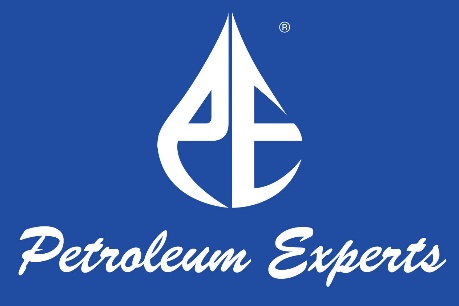 | Petroleum Experts Limited has donated 10 licences of their IPM software to our students for learning and research purposes. PETEX Software Suite (worth £2,872,003.87) includes:
|
SOCIETY OF PETROLEUM ENGINEERS (SPE) STUDENT CHAPTER EXCELLENCE AWARD
Society of Petroleum Engineers (SPE) Student Chapter at APU gains recognition from SPE International. In recognition of the Society of Petroleum Engineers (SPE) Asia Pacific University’s Student Chapter’s efforts in technical knowledge dissemination, uplifting society, and community outreach & innovation, SPE International presented them SPE Student Chapter Excellence Award 2021.
Established in February 2020, SPE APU Student Chapter has accomplished many milestones during the first year, including this outstanding accomplishment whereby APU is among three local universities winning this award.
Please click HERE for more information.
CAREER OPTIONS
|
|
COURSE FEES
Malaysian Students | International Students |
Year 1: RM 27,500 | Year 1: RM 30,400 (USD 6,910) |
* Fees stated here do not include Deposits and other Miscellaneous Fees. Please refer to Fee Guide for details.
MQA ACCREDITATION
(R/0724/6/0001)(10/27)(MQA/FA6546) |
| All information is correct at the time of publication, but is subject to change in the interest of continuing improvement. |
Engineering Degree Programmes |



